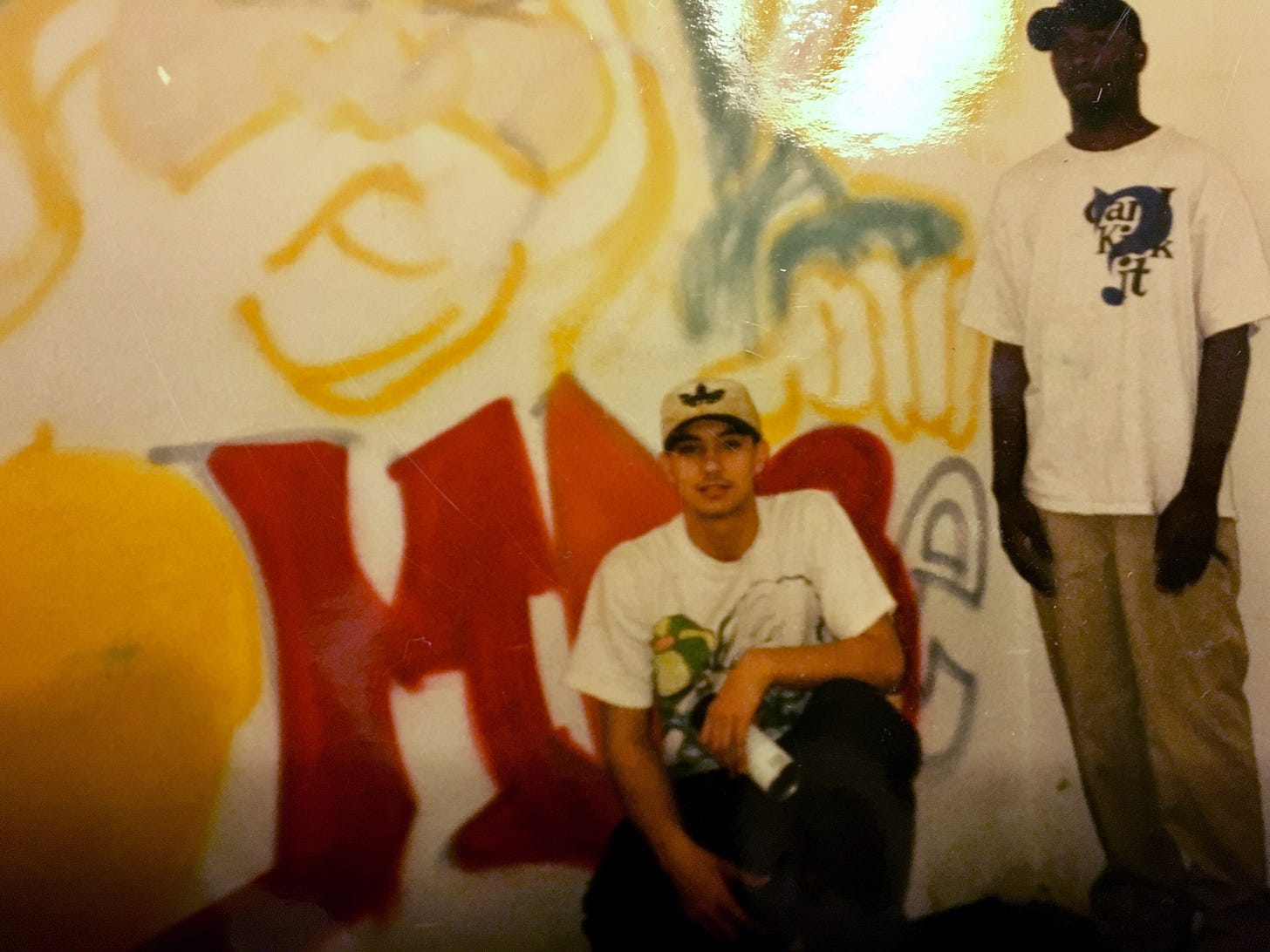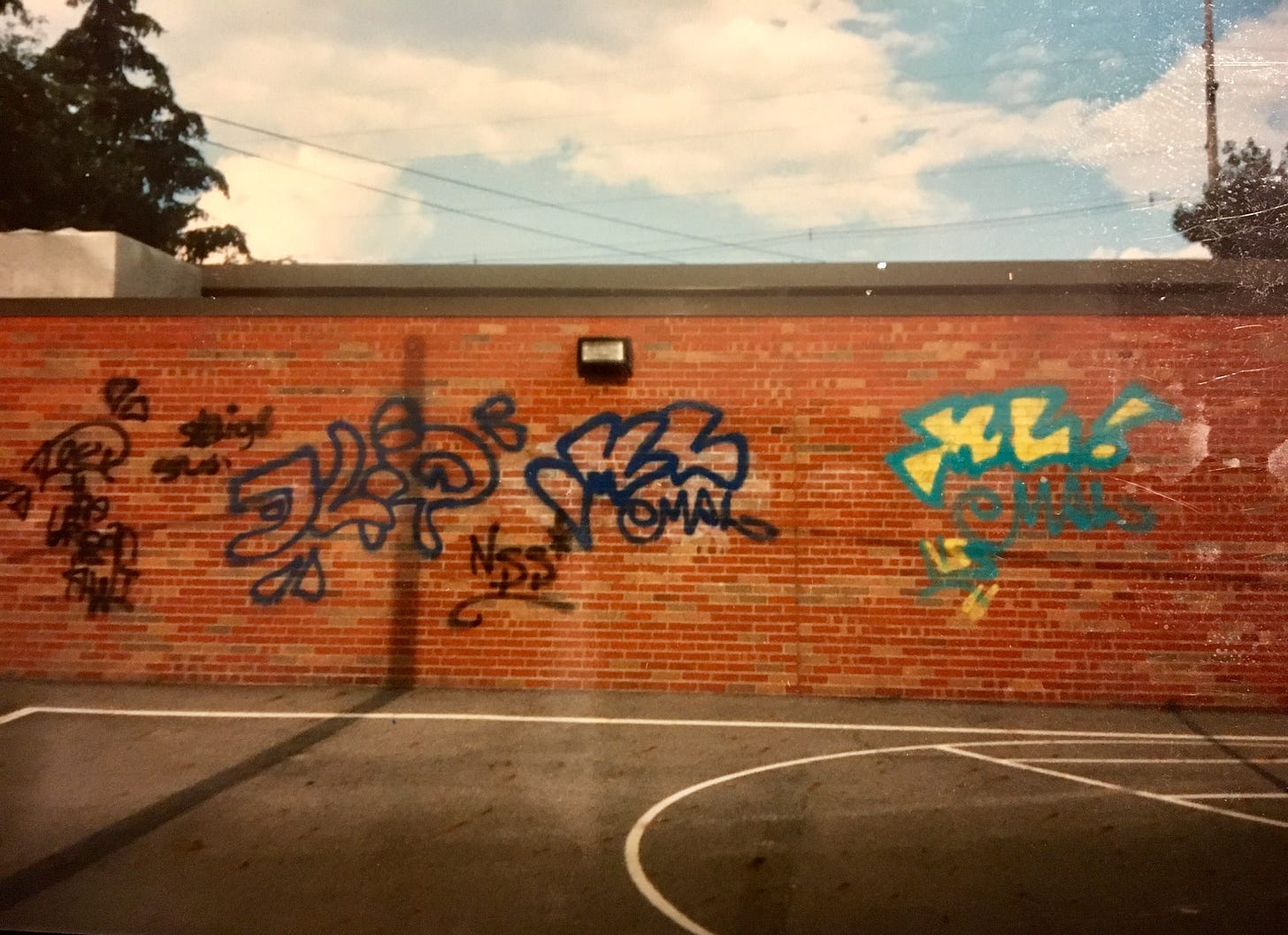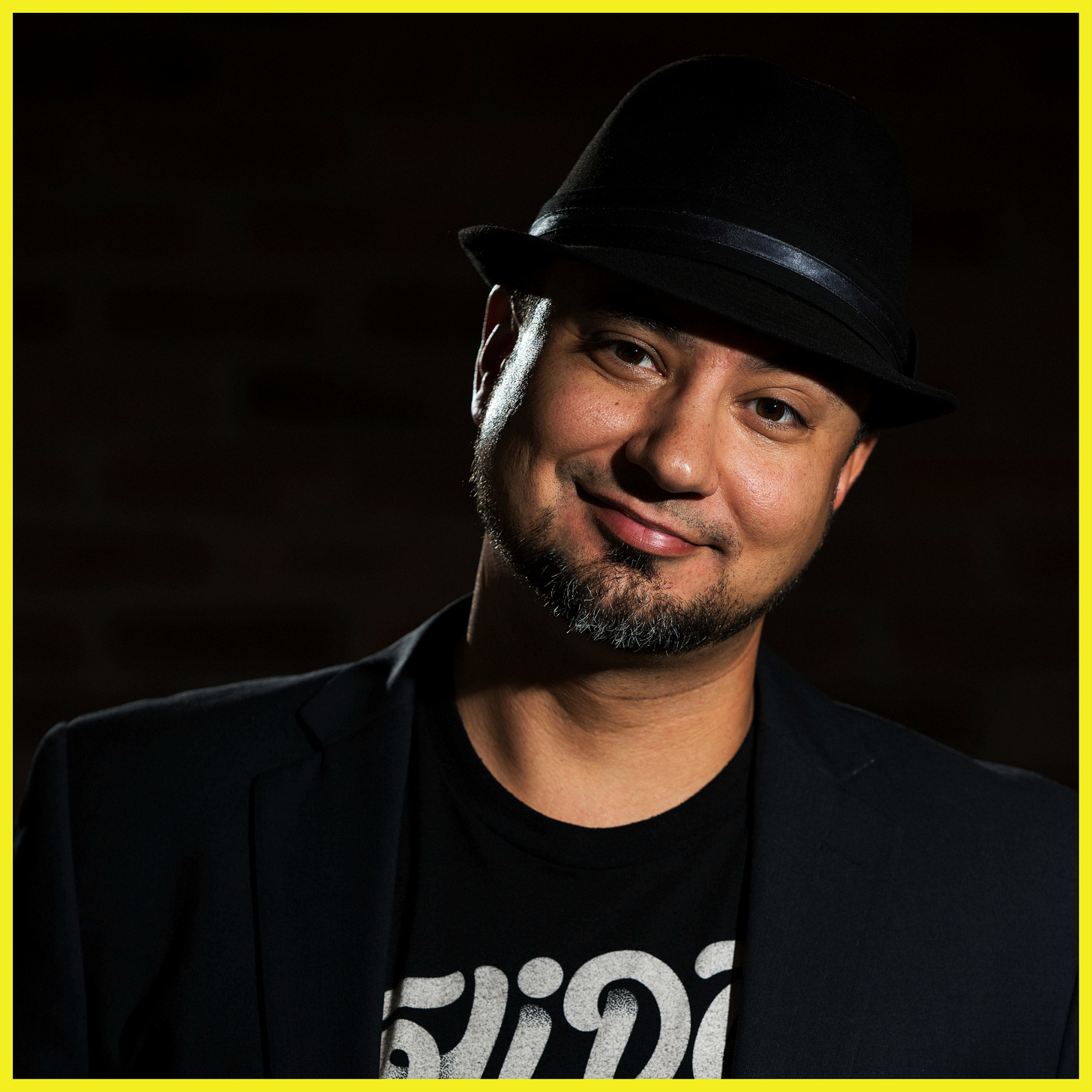THE IMPORTANCE OF A LOOKOUT GUY
A GOODS LOOKOUT GUY IS LIKE A BIBLICAL WATCHMAN … AND AN APOLOGIST SHOULD BE A BIBLICAL WATCHMAN
I have a criminal record. Got hit with a Class 3 Misdemeanor when I was a teenager. Why? Didn’t have a lookout guy. Also … because I was doing graffiti art illegally.
Graffiti artists need a lookout guy, at least when they’re writing illegally. I learned this once in Columbus, Ohio.
Let me set the stage. We would often go out tagging by a place we called the “Homeless Castle”. The “Homeless Castle” was this three-story abandoned brick structure southeast of downtown. A whole colony of homeless people lived in and around there. Whenever we were nearby, we would notice a man (or a woman) peer over the edge on the top of the roof or through a hole in the wall and just stare us down.
I remember this one lookout guy was staring us down super hard as he chomped aggressively on a sandwich. I never forgot his body language; it was distinctly specific. This person acted as a lookout guy for the rest of the homeless folks who had made the “Homeless Castle” their temporary home.
I should have taken notes. Our writing crew, the Nocturnal Street Scribes (NSS), needed a lookout guy of our own. Or, we should have at least looked around the corner to see what was next. We didn’t and we paid the price.
One night, we were out tagging in the general vicinity of the “Homeless Castle”. A writer friend of mine (DAK) and I just finished a “bombing run”. We stopped to hit a final building at the edge of this bridge. After throwing up a quick “MAL ONE!”, we walked out into the clearing. A police van and cop car were waiting. The cops pounced and quickly placed us under arrest.
That was the only time I was charged for “Criminal Mischief” for “Vandalism”. I would have been charged another time (or two or three), but one officer showed us mercy. That time, we actually had a lookout guy! That’s another story for another time.
THE IMPORTANCE OF A WATCHMAN
Back in the 90s, our graff crew needed a good lookout guy. Back in the 590s BC, Jerusalem needed a good lookout guy, too. Only then they were dubbed “watchmen”. Commentator Ralph Alexander lays out their basic responsibilities (note: Dr. Ralph Holland Alexander was a professor of Hebrew Scripture and chairman of the Division of Bible Studies at Western Seminary in Portland, Oregon. He did graduate work at Hebrew University and specialized in Hebrew and archaeology):
“A watchman in OT times stood on the city wall as a sentry, watching for any threat to the city from without or within. If he saw an invading army on the horizon or dangers within the city, such as fire, the watchman would immediately sound the alarm to warn the people”.
SOURCE: The Expositor’s Bible Commentary, Revised Edition. Jeremiah-Ezekiel, Vol. 7 (Grand Rapids, MI: Zondervan, 2010), 671.
Usually, the signal was a trumpet call. Today, it may be a sermon, a blog post, or even a Tweet.
In Ezekiel 3:17-21, Yahweh speaks of the role of a watchman. The initial context deals with prophets during the days of Israel’s kingdom in biblical times. Those who speak for Yahweh must warn God’s people of impending danger. There are relevant insights we can gain from Ezekiel 3:17-21 (ESV):
EZEKIEL 3:17-21
Son of man, I have made you a watchman for the house of Israel. Whenever you hear a word from my mouth, you shall give them warning from me. If I say to the wicked, 'You shall surely die,' and you give him no warning, nor speak to warn the wicked from his wicked way, in order to save his life, that wicked person shall die for his iniquity, but his blood I will require at your hand. But if you warn the wicked, and he does not turn from his wickedness, or from his wicked way, he shall die for his iniquity, but you will have delivered your soul. Again, if a righteous person turns from his righteousness and commits injustice, and I lay a stumbling block before him, he shall die. Because you have not warned him, he shall die for his sin, and his righteous deeds that he has done shall not be remembered, but his blood I will require at your hand. But if you warn the righteous person not to sin, and he does not sin, he shall surely live, because he took warning, and you will have delivered your soul.
UNDERSTANDING THE WATCHMAN OF EZEKIEL 3
Looking at the immediate cultural and historical context of Ezekiel 3, we see the concept of a 'watchman.' This was someone who warned and inform people about threats, such as attackers or natural disasters. Ezekiel is appointed by God to be a watchman. A watchman's job is to warn the people of an enemy coming so they can run to safety. The prophet's job is to warn the people of God's coming wrath so they can repent.
This watchman's warning is similar to the "Air Raid Warden" who would provide warning of foreign threats during World War II. The alarms sounded were intended to warn the people of approaching danger so that they could take shelter and avoid harm. In a similar way, the watchman's warning was meant to caution people against God's wrath and prepare them for His impending judgement. Ezekiel is a spiritual watchman, providing warning to people so that they can flee from sin and run to God's mercy.
A GOOD LOOKOUT GUY IS LIKE A WATCHMAN …
AND AN APOLOGIST SHOULD BE A WATCHMAN
Yes, I am comparing our graff crew having a Lookout Guy with Jerusalem having a Watchman. Obviously, one is more important and part of a righteous cause. A good Lookout Guy can help keep you out of jail. A good Watchman can keep you out of the grave.
Still, when I remember Ben (our “lookout guy”) peering over the wall to watch for cops, I think of a vigilant Jerusalem Watchman, scanning the horizon for enemy troops. I also think of an Old Testament prophet warning Israel of national wickedness, personal sin, and false prophecies and a New Testament pastor as he shepherds the flock of Christ, always wary of spiritual threats towards the sheep. I also think of a Christian apologist, keeping their ear to the ground, hearing theological threats before they arrive in full. And of course, in the city context, I think of the urban apologist, warning the church of the heretical dangers of poisonous ideologies like Kemeticism and Hebrew Israelism.
In our post next week, we will look more at the biblical passages regarding a Watchman.
PS: I tell some more graff art stories in this discussion with a writer friend of mine, FLIP, here:






